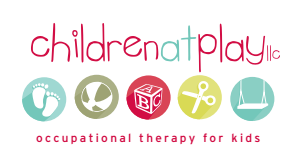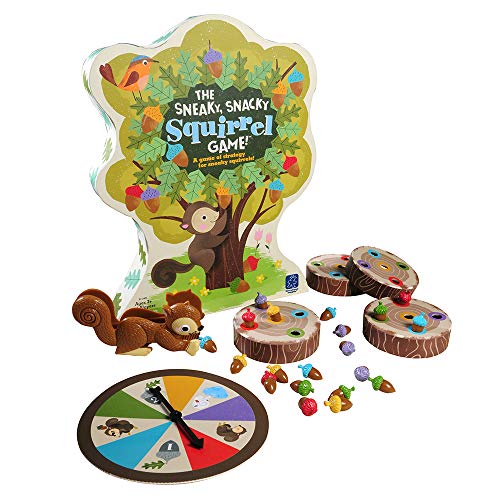At Children at Play, we're all about helping each child shine and grow through play. Board games are more than just fun—they're fantastic tools for learning and development. Here are some of our favorite board games to play with kids to build a variety of skills to work towards their OT goals.
Board games work on so many skills, including social, fine motor, visual-spatial, and more. Our suggestions for games that focus on these OT skills are below. We’ve tried to include games that start with preschool skills and more complex games as your kids age and advance. The games are listed by skill type, from beginner at the top to the most complicated at the bottom in that skill type. At the end are seven tips for enjoyably playing board games as a family with children of varying skill sets.
Fine Motor Fun
Playing board games is a fun way to get your child to practice their hand-eye coordination and fine motor skills. Those fingers get a mini workout picking up game pieces and rolling dice. Any game that involves tongs or other tools is a win in our book! It's all about building those hand muscles and improving control while having a blast!
We suggest these games for Fine Motor Development:
Jumping Jack
Grab that Monster!
Noodle Knockout!
Sneaky Snacky Squirrel
Hi Ho Cherry-o!
Dreaming Dragons
Teamwork Triumphs - Cooperative games
Cooperative board games help families and siblings to work together, share ideas, and solve problems as a team. It's all about fostering cooperation, communication, and friendship. They’re great for younger kids and involve the whole family. They are also wonderful for kids who struggle with losing and competition.
We suggest these games to work on social skills:
Hoot Owl Hoot
Snug as a Bug in a Rug
Race to the Treasure
Mermaid Island
Ghost in the attic
Forbidden Island
Brain Power Boost - Executive functioning
Board games sharpen kids' thinking skills, like planning ahead, making decisions, and problem-solving. It's like a mini mental gym session every time they play. Executive functioning skills combine motor, sensory, communication, and cognitive skills, so expect these games to take longer to learn and try them out when you’re feeling relaxed and patient.
We suggest these games to work on planning & attention control:
Mancala
Gnomes at Night
Cat Crimes
Clue
Guess Who
Rush hour
Eyes on the Prize - Visual Perception
Visual perception develops over time and board games can help build this skillset in a super fun way. Spotting patterns, matching colors, and making quick decisions—all of these help improve visual processing skills. You can really see your child’s improvement as you play these games with them over the course of months!
We suggest these games to improve visual processing skills:
Zingo
Sequence (Sequence for kids & Sequence Original, not Sequence Letters)
Connect 4
Perfection
Blockus (available in the 4-player original & 2-player Duo versions)
Together We Win
Here are a few tips to set you and your family up for success:
Choose the Right Game.
Carefully consider the developmental appropriateness of a game, the ages of the people playing, their interests, and the specific executive functioning skills they need to develop. We suggest asking your child’s OTs for suggestions. When in doubt, start with a simpler game than you think they can handle and build up to more complex games when they’re confident with the simple. Many games have a junior version that leads into the regular version well.
Repetition.
Be willing to play the same game over and over for weeks or months. If your child is still interested in playing it, they are still building skills.
Make it a Regular Activity.
Skills don’t develop overnight or happen without specific practice. Dedicate specific time(s) each week for games.
Connection.
Choose a time that you can be present and engaged with your child throughout the game. Put the electronics away and turn off the TV; your interaction will help them to regulate.
Team Up.
You can make competitive games more cooperative by playing as teams instead of individuals.
Make it Fair.
If you’re playing a competitive game with your child, consider starting the game with a scoring handicap since you’re an adult. Maybe they get two turns for every one of your turns, or you have to play with fewer cards in your hand.
Fun First.
Try to make playing board games only about having fun together and enjoying each other's company. Let the skills developed be a perk; the goal is fun!
This page has affiliate links. As an Amazon Associate, we earn from qualifying purchases (which means that if you click on the link on this page and make a purchase, we may receive a small commission.) This does NOT result in any additional cost to you and does not impact which items we pick as our favorites. The affiliate money we earn helps pay for the volunteer programs we facilitate - thanks for your support.

























